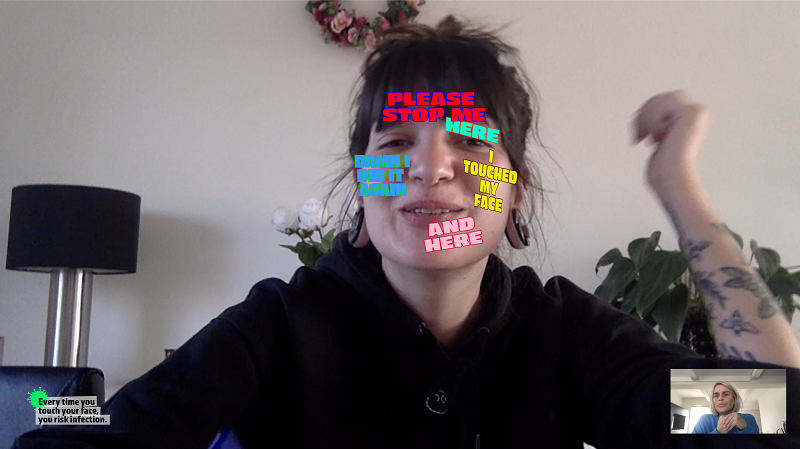IRFC and Happiness created ‘Facetouchers’ to tackle compulsive face touching
The average person touches their face 23 times an hour. That’s once every 2.6 minutes. It seems to be almost impossible for the average person to go without compulsively scratching, rubbing or wiping their cheek, nose, eyes or mouth.
But to diminish the risk of being infected by Coronavirus, there are two very important instructions. The first one being to wash your hands, thoroughly and often. The other one however is less familiar, much harder but as important: Do not touch your face. This isn’t a novel health warning, but it’s not issued as loudly as ‘stay at home’, ‘keep your distance’ and ‘wash your hands’. So, how do we help people make a change?
‘Facetouchers’ was created as one way to tackle the problem. Invented and developed by creative agency Happiness for their client, the International Federation of Red Cross and Red Crescent Societies. IFRC is the world’s largest humanitarian network that reaches 150 million people in 192 National Societies through the work of over 13,7 million volunteers.
With millions of people spending many hours of video calling nowadays, a huge amount of them are playing with snap filters to make their calls slightly more entertaining. With ‘Facetouchers’, IFRC introduces a new, fun and educational filter to Snap Camera. ‘Facetouchers’ keeps track of how much and where exactly you touch your face during video calls.
So, every time you touch your face during a video call, a message appears exactly on the place where you touched it. Every time. A fun and educational way to turn a Snap Filter into a behavioral changing tool for a very important reason.
The International Federation of Red Cross and Red Crescent Societies (IFRC) is the world’s largest humanitarian network that reaches 150 million people in 192 National Societies through the work of over 13,7 million volunteers. Together, they act before, during and after disasters and health emergencies to meet the needs and improve the lives of vulnerable people – without discrimination as to nationality, race, religious beliefs, class or political opinions.







